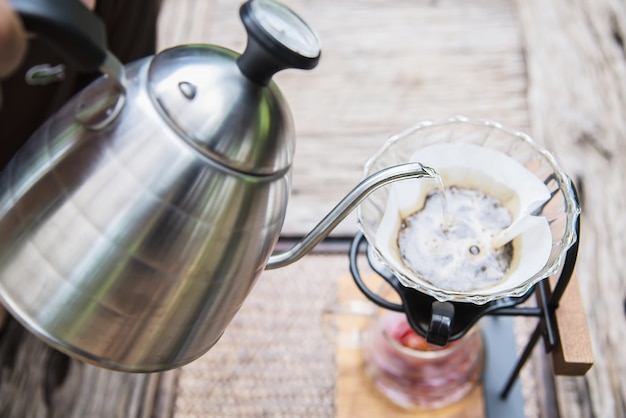When it comes to brewing the perfect cup of coffee, most people focus on selecting high-quality beans, grinding them fresh, and using the right brewing method. However, one critical factor often overlooked is water quality. Since coffee is made up of over 98% water, the minerals, pH level, and purity of the water you use can significantly influence the final taste. If you’ve ever wondered why your coffee tastes bitter, flat, or lacks complexity, your water could be the culprit.
Why Water Quality Matters in Coffee Brewing
Water does more than just dissolve coffee grounds—it actively extracts flavors, oils, and aromas from the beans. If the water has too many impurities or an imbalanced mineral content, it can lead to poor extraction, resulting in a dull or bitter cup. According to Seven Miles Coffee Roasters, the wrong water composition can suppress the rich flavors that make coffee enjoyable.
On the other hand, high-quality water enhances the taste of coffee by ensuring proper extraction, bringing out the natural sweetness, acidity, and body.
Key Characteristics of Ideal Brewing Water
1. pH Level: The Balance Between Acidity and Alkalinity
The pH level of water affects how flavors are extracted from coffee grounds. The ideal range for brewing is between 6.5 and 7.5, which helps maintain a balanced flavor.
- If water is too acidic (pH below 6.5), coffee can become overly sour.
- If it’s too alkaline (pH above 7.5), coffee may taste flat or muted.
2. Mineral Content: The Secret to Flavorful Coffee
Water hardness, which refers to the concentration of calcium and magnesium, plays a crucial role in coffee extraction.
- Moderate hardness is ideal—too much can cause over-extraction (leading to bitterness), while too little results in under-extraction (producing weak, bland coffee).
- Calcium and magnesium help bring out coffee’s natural sweetness and body, making the cup more balanced.
This is why experts at Kiboko Coffee recommend testing your water’s mineral content to fine-tune your brewing process.
3. Purity: Eliminating Unwanted Tastes
Water often contains chlorine, heavy metals, and other contaminants that negatively impact coffee flavor.
- Chlorine gives coffee a chemical or plastic-like taste.
- Excessive sodium or iron can result in metallic or salty notes.
Using a high-quality water filter or opting for bottled water designed for coffee brewing can help remove these unwanted elements. As suggested by Lost Sheep Coffee, filtered water can significantly improve both taste and extraction.
Types of Water for Brewing Coffee
1. Tap Water: Convenience with Inconsistencies
Tap water quality varies by region. Some areas have high chlorine content, while others may have excessively hard or soft water, affecting the final taste of your coffee.
2. Filtered Water: The Best of Both Worlds
Filtered water is an excellent choice because it removes impurities while preserving essential minerals. A carbon or reverse osmosis filter can significantly enhance your brewing water without stripping away the minerals needed for good extraction.
3. Bottled Water: A Reliable Alternative
Bottled water offers consistency, making it a great option if your tap water is unsuitable. However, not all bottled water is ideal for coffee brewing. Look for:
- Low sodium content
- Balanced calcium and magnesium levels
Certain brands offer bottled water specifically formulated for coffee, ensuring optimal mineral balance and pH level.
Optimizing Your Brewing Process
Even with high-quality water, you need to fine-tune your brewing technique to get the best results. Here are some key tips:
- Use a Quality Water Filter: This ensures unwanted chemicals don’t interfere with extraction.
- Monitor Water Temperature: The optimal brewing range is 90°C to 96°C (195°F to 205°F) for proper extraction, as recommended by LifeBoost Coffee.
- Experiment with Different Water Sources: Try brewing with tap, filtered, and bottled water to see how each affects your coffee’s taste.
Conclusion
Water quality is one of the most overlooked yet crucial factors in coffee brewing. By understanding the impact of pH levels, mineral content, and purity, you can significantly improve the taste of your coffee. Whether you’re using tap, filtered, or bottled water, making a conscious choice about water quality will help unlock the full potential of your beans.
If you’re passionate about crafting the best cup of coffee at home, take the time to evaluate and adjust your water quality—you’ll be amazed at the difference it makes.









